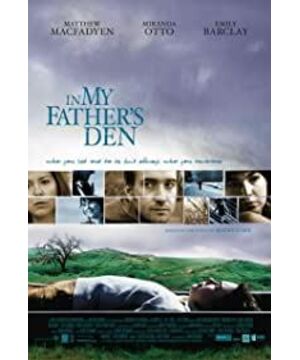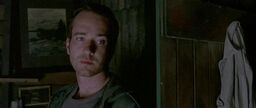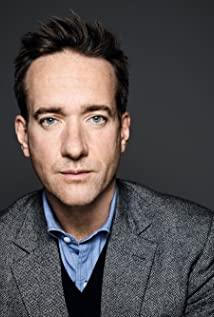Marcel Proust once wrote: "In my house, there are everything that is useless, but the most necessary thing is missing-a large blue sky like this." It gives people dreams and makes people fly. Light up the shimmer of thoughts for those who are lost.
One, escape
Paul Pryor left home at the age of seventeen with only a heavy backpack. Regardless of the desperate and sad call of his brother behind him, he never looked back. The white wooden house, the orchard surrounded by pink snow clouds, the still river, and the quiet passing by only the chirping of birds and the wind in the wild, all of his brains were left behind by him. For Paul, this does not belong to New Zealand, does not belong to his hometown, does not belong to his childhood, and does not belong to any place. This is the existence of a wonderland, only occasionally can I separate the faint and vague images here from the memories of the vast haze; here is like a picture frame, honestly storing all the words he has said and what he has not said. Then, Abandoned, trampled, thrown into the raging fire, but still appears on the wall, in those places that are not conspicuous, but will surely flash endlessly in the middle of the night. This was something he didn't expect when he ran away decisively, as if it was a leaping young frivolous, pushing him into the adventure route of the same kind of Yang Fan's world-they are like those fluffy, fluttering birds in their nests. Similarly, they were born with the soil in their hands, but the pulsating flames in their souls guided them to fly to the blue sky. They can’t wait to shake their sparsely feathered wings, swaying to feel the wind holding up their weak body, full of longing for the infinitely wide world outside: they want to sit in a Spanish café and look at the sea in the sunset; they want to cross the world. The driest Akatamar Desert, see if there will be turbulent water flowing in the rivers there; I want to be in the war-torn Rwanda, and talk to the ghosts lingering there. However, they forgot, no matter how high and far they fly, one day they will still return to the dirt.
Although the same story happened in every corner of the world, this wandering island country made the resonance of this kind of flight even stronger. "I like to tell stories that resonate with me." Like Paul in the story, director Brad McGean has left New Zealand for seventeen years. He understands the excitement of leaving and also knows the special meaning of "going home". Just like New Zealand, the more quiet and beautiful the place, the more aggravated the restlessness of the heart. And its isolation is more like magma surging under the snow-capped mountains, and the resulting sense of isolation often makes the young people here feel panic and uneasy. They want to go out and create a new life. Among them, some people will come back, some people never come back. Anyone who has ever returned will understand that there is a connection that cannot be severed. No matter how many years have passed, once you set foot on this land, everything you know well, dusty memories, will pour out of the wine bottle. People call you like an old friend you haven't seen for many years, and everything you thought has disappeared is now alive again. It's like Paul returning to his childhood secret reading room, turning the globe on the table, childhood, father, and atlas, everything from the past appeared before him as if it were yesterday. McGinn said that people bury the memories they don't want to take away in their hometowns, but they don't know that they will never be able to get rid of these things for the rest of their lives.
Sometimes, fleeing is a kind of confrontation, a kind of pursuit, and the beginning of a brave journey. Sometimes, escaping is a kind of denial, a kind of sinking, the dead silence on the eve of the storm. Paul, who had been away from his hometown for 16 years, changed his accent and appearance, went to places that others could not reach, became what many people dream of becoming, and plunged into the bloody wind of the world. Then, one day, he suddenly found that he was so lonely, irritable, and nervous, that he had drawn a restricted zone in his heart that no one could touch. When he was a child, he could only stare at this novel world, looking at his mother's melancholy eyes, being isolated from his brother and mother, without any dominance. Even in his own home, he is an outsider. After he finally grew up, he saw this devastated world, but found that he was still not accepted anywhere. Father once held his little hand, pointed to the world atlas, and read James Baxter’s famous verse: “We came to this world alone/die alone/look at the red light on the snow-capped mountain/before the mountain road OK / strange you / please slow down / worship the sky / angry heart". Since then, loneliness has become a refuge for his rebellion, sorrow, and pain. He regards all emotional maintenance as a toxin in the blood, and he can't wait to make himself new and forget everything that has happened through alienation and flight. He never thought about it, but he became more and more lonely, disconnected from the world, far away from home and himself. John Dunn once wrote: "No one is an island, it can be on its own. Everyone is part of the vast continent." Those that have been abandoned are the last pieces of the puzzle that make the soul complete.
2. Walking
with scars on his back in McGean's diary, he has always cherished a sentence from Robert Bresson: "Make a movie of those things that only you can show." At first, this idea was lost in his heart. A seed flourishes and grows into today's inner torrent. What he wants is not just a knowing smile after a meal, but to "replace what the soul can't see through with something the soul can identify with through the lens." The flashing stories on the screen are just the carrier of this spirit. These stories do not belong to him, they belong to the characters trapped in them. How to tell this story can reveal the beauty hidden in it, and the subtext hidden in it belongs to him. It's as if Monroe blooming in black and white film belongs to old movies, and her colorful smile puzzle belongs to Andy Warhol's pop art.
The story of the film comes from the novel of the same name by New Zealand novelist Maurice Key. The book tells the story of a black family that took place between the 1930s and the 1960s. The themes include Protestant ethics and the influence of sexual repression on upper class society. All contradictions and conflicts revolve around the emotional interweaving between the two brothers. Paul's brother Andrew is the protagonist. Paul is just an ordinary teacher. His relationship with Celia is also different from that in the movie, being interpreted as a subtle "Lolita complex." Many scenes in the original book are incompatible with today's world. If copied, it would be as abrupt as building a Gothic cathedral among the neon lights of Broadway. However, McGean still chose this story. Because he saw the immutable things, that is, "the mythological content and intentions of different cultures, those things that can reveal the common root of the human soul." He retained the deep emotional clues in the novel, and those hidden in the story. On the other hand, the pain obscured by the shadow of the times. In McGean's lens, there is stillness, emptiness, and tranquility, and the intimate relationship between people is portrayed lightly as a realistic work. The hidden undercurrents quietly flow into the viewer's heart. And the silent ballads sung by this turbulent undercurrent are just the pain that those people bear.
A secret that should have been buried and decayed by time has burned indelible pain in Paul's heart, in the heart of his brother Andrew, and in the heart of Jacks, who was with his childhood sweetheart. They were wounded and gathered again because of fate. Their ensemble awakened the dead secret and sang a sad song. Paul was the one who bore the most pain and the one who escaped the farthest. In the ten years since he left his hometown, he went to London alone, worked as a typographer, worked as a columnist, and later became a war correspondent for Reuters in Bosnia, and was nominated for a Pulitzer Prize, but he soon automatically quit. He can calmly record the most ugly and tyrannical side of the world, not afraid of flying through the riots of bullets, not afraid of facing bloody death, but afraid to look at his past. He is like a warrior fighting alone, returning to the land he once knew, rejecting the past, but he can't stop the oncoming huge waves.
Celia, a girl with creative dreams and desire to fly, walks into Paul's life. There is a secret connection between them, which allows him to see his untainted innocence and dreams, and makes him willing to stand with this girl, stand beside his wound, talk, and see that he can’t face it alone. The abyss. The most difficult and saddest moments in life made him hurry up: he does not celebrate his birthday on Christmas, he does not want to mention the Pulitzer Prize, and he does not want to talk about the death of his mother. He just said that that day, his mother was standing in the river just kneeless, looking at him on the shore with a sad smile, pointing to the bird in the sky, and immediately disappeared. He escaped the eye of the family storm, but plunged into the storm of war and death. People like him who are accustomed to pain can only feel comfortable living in a temperature that is almost boiling. When he returned to his hometown, he would complain that it was too quiet, which made him keep ringing in his ears. He can't establish close contact with anyone. When making love, he needs to choke his throat with a belt to suffocate himself. If you have to ask how deep the pain is, the devastated world is a mirror of his soul.
The music of the movie is the introduction to this pain, the long rhyme that evokes reverberation. Kanawa's beautiful singing echoed in Paul's childhood memories, and it also floated under the trees where he and Celia celebrated their birthdays. Kanawa sings of love, and with an uneasy heart, she asks her beloved how many people have embraced and kissed her. Then, ask him to keep this secret sealed, and let her guess forever, without the pain of love. This feeling of wanting to explore but with fear in his heart is like Paul not facing the truth of his mother’s death, not wanting to know the secrets hidden by his father, he just wants to remember the look his father guided him to the world, and the way his mother died before his death. Smile. Patty Smith's song has replaced Dostoevsky's book in the novel, and has become their rebellious leader, telling the lost and perplexed of their youth.
3. At the end of the road, the disappearing sea
die. It is destruction, end, silence, the messy and polluted city after the storm is over, and the shadow of struggle and twisting on the coast at low tide. It has always promised a lot of money for life, without it, life will be worthless. In 1997, McGean learned that he was suffering from bowel cancer and began to fight against death. During the shooting of his first and final feature film "In My Father's Cave", he thought he had overcome the illness, but in 2004, when the movie was released, he faced the comeback of death again. Death has become a part of his life and is engraved in his works: In the short film "Possum", the mother's early death caused subtle changes in the daughter's character and status in the family; "In My Father's "In the Cave" even contains various deaths, the suicide of the mother, the death of his father, and Celia's mysterious disappearance. However, these deaths did not plunge the story into a gloomy and miserable situation. Instead, flowers of life grew on its branches, and they kept whispering. It is painful and it makes people feel sober.
The film uses Celia's article "The Day When the Tide Ebbs" as the narration for the entire film. She represents the loss and hope of the younger generation. Although shrouded in the haze left behind by the previous generation, she still has dreams. She has the ignorance, innocence and perplexity that is unique to youth, and she is also worried about the toes of youth to try to take a step toward life. She is the dark blue sky above the forest of memories. She broke into Paul's self-proclaimed life, and the connection buried in the blood of the two of them also revealed the mystery of the family that had been silent for many years. No one can blame her for her death, just like Mickey who died of an accidental electric shock in "Ice Storm", they were all victims of being trapped in the whirlpool of two families. "This is a collective cause of lies and murder." The adulterous slips, lies, cowardice, evasion, and resentment engulfed Celia step by step. Everyone’s actions will affect the world, and every choice will reverberate, as John Dunn said: “Anyone’s death costs me because I am conceived in humans.” Celia is her. The disappearing sea written in the article. The disappearance of the sea made the peaceful town panic. They feared, looked for, and placed their hopes on the horses, but they could never see the sea again. As a result, "They learned to face life without the sea, looking at each other in the midst of being lost. The sea will remain in their dreams forever." Celia's death allowed people to finally face the truth more than ten years ago, and they began to learn to let go , Forgive, forgive, and start again.
Carrying pain, facing a beach mottled by the truth, and even death, all we can do is to live with hope. As already far away in heaven McGinn, facing the scythe of death, he said: "I am very happy life and the desire to have a movie with me.."
Reprint please indicate: nine black
text published in " Watching Movies Midnight Show"
http://i.mtime.com/LadyInSatin/blog/7499584/
View more about In My Father's Den reviews











